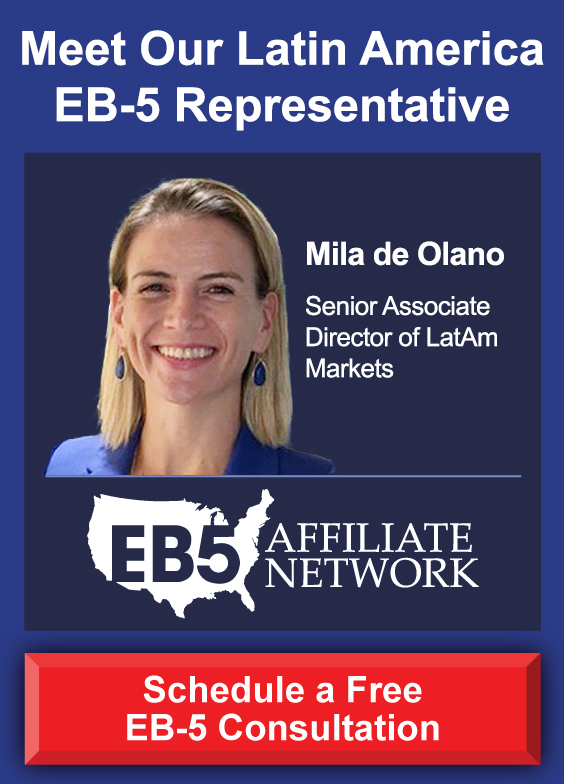
As the EB-5 Regional Center Program sunset date of June 30, 2021, hurtles closer and closer, the EB-5 investment world finds itself in a bind. Without the omnibus government funding bill the program’s reauthorization has traditionally been tied to, the possibility of regional center program termination has become a very real possibility. With three months left to save the ever-popular regional center program—which accounts for the majority of EB5 investments—the EB-5 industry has rallied behind the EB-5 Reform and Integrity Act, a bill proposed by bipartisan senatorial duo Chuck Grassley and Patrick Leahy. But what exactly would the bill do for EB-5 investment stakeholders?
The bill is primarily concerned with tightening security and integrity measures to more effectively root out fraud and ensure EB5 investment capital is used as Congress intended. The changes are generally beneficial for investors, as the bill includes special protections for those with EB-5 investments. It also introduces more stringent integrity measures for regional centers, which would make it easier for a prospective EB-5 investor to locate a trustworthy EB-5 regional center to invest through.
The key changes of the proposed bill for EB-5 investors are as follows:
Long-term EB-5 Regional Center Program Reauthorization
The most pressing issue for the EB5 investment industry is the looming termination of the regional center program, whose termination would be disastrous for the EB-5 industry. If the EB-5 Reform and Integrity Act comes to pass, it will automatically reauthorize the regional center program through 2026, giving applicants who make an EB-5 investment through a regional center peace of mind for the next five years.
More Accountability from Regional Centers to Investors
Regional center EB5 investment offers a myriad of advantages over the less popular direct investment route. For example, regional center investors do not have to engage in the day-to-day management of the new commercial enterprise (NCE), giving them more time and the freedom to live far away from their EB-5 project. Regional center investors are also able to include indirect and induced jobs in their job creation calculation, making the requirement of 10 newly created full-time jobs for U.S. workers easier to achieve. Finally, if a foreign national makes an EB5 investment through a USCIS-approved regional center, they can leverage the knowledge and experience of the EB-5 experts on staff.
Nonetheless, the risk of fraud in a regional center remains, however slim. Some EB-5 investors also have concerns about not directly supervising their EB-5 investment project. The proposed reform bill could help to alleviate investors’ concerns regarding such issues, as it would compel regional centers to provide, on an annual basis, statements to the Department of Homeland Security and to all participating EB-5 investors that account for all EB-5 investment capital and demonstrate EB-5 program requirement compliance. Regional centers would additionally need to hire a fund administrator or commission an independent annual audit to ensure EB5 investment capital is being used as intended.
Stronger Protections for EB-5 Investors
If an investor does, despite good faith on their part, find themselves mired in a fraudulent regional center, the EB-5 Reform and Integrity Act can also salvage their immigration eligibility. Fraud is rare, but it can destroy the hopes and dreams of unsuspecting, honest EB-5 investors, which is why the proposed act is written to offer such victims a second chance at a brighter future in the United States. As long as the investor was not involved with the fraud themselves, they “associate with EB-5 entities in good standing,” and they meet the rest of the EB-5 program requirements, they may continue with their participation in the residency-by-investment program. The investor would be given 180 days to find a new regional center and make whatever additional investment is necessary to create the remaining jobs needed to fulfill the EB-5 requirements.
Another protection the bill would offer applies to EB-5 investors with older children. Under U.S. immigration law, a child must be unmarried and younger than 21 to be considered a child for immigration purposes. Given the long wait times associated with an EB-5 investment, particularly for Chinese nationals, children aging out of EB-5 visa eligibility is a serious concern for many investors, but the proposed bill would protect the children of certain EB-5 investors from aging out if their petition were terminated or their application to remove the conditions on their conditional permanent residency were denied.
Mandate for USCIS to Work Toward Faster Processing Times
The issue of long processing times has been detrimental not only to the EB-5 program but to U.S. immigration as a whole. As of March 2021, some EB-5 investors—mostly Chinese nationals—have been waiting more than six years for their EB-5 visa, and the backlogs for some other immigration programs are even longer. The EB-5 Reform and Integrity Act would address the slow processing times in the EB-5 program by laying out reasonable processing times and forcing USCIS to conduct a fee study within a year of enactment. Then, USCIS would be required to adjust program fees as necessary to process EB-5 petitions at the stipulated efficiency.
What’s in Store for the EB-5 Program?
If the EB-5 Reform and Integrity Act passes, the landscape of the EB-5 program will change significantly, with the modifications adding new protections for EB-5 investors, accelerating processing times, and improving the program’s public image by cracking down on the few fraudulent cases that exist. If complemented by the passage of the Biden administration’s proposed U.S. Citizenship Act of 2021, which would enact significant reform to cut down on backlogs, the EB-5 program could soon be in a much better position than it has been in years. The reform would inspire more trust among both investors and the U.S. public, allowing the program to continue stimulating the U.S. economy and offering a chance at a better life for countless foreign investors.











